The Hepplewhite House
Ted Lott's Hepplewhite House was inspired by a garage-sale find and a desire to explore the common motifs in furniture and architecture.

Click here to enlarge the photo.
Synopsis: A blend of sculpture and cabinetry, Ted Lott’s Hepplewhite House was inspired by a garage-sale find and a desire to explore the common motifs in furniture and architecture.
Ted Lott braids together art and craft, furniture and architecture, found objects and fantasy houses. He’s fascinated by the connections between buildings and furniture: their shared stylistic motifs, their common catering to the human form, and their mutual reliance on wood. He points out that in the past, “the cabinetmaker and the house builder were often the same person—a joiner who built cabinets in the winter and framed houses in the summer.” If Lott is infatuated with habitation, perhaps it’s because he’s been so much on the move, having lived, worked, and studied everywhere from Hawaii to Maine, with dozens of stops in between, as he explored woodworking, cabinetmaking, house building, blacksmithing, and sculpture. When he built this piece, he was working as a restoration carpenter on historic houses in Cooperstown, N.Y., and came across a reproduction Hepplewhite settee in poor condition at a garage sale. After some contemplation, he cut off its legs (“quite a disconcerting moment”) and used them as the foundation for a miniature platform-framed house, building it floor by floor with tiny studs, joists, and planking bandsawn from white pine boards and left rough like vintage building timbers. The facade of the house, with its two curved doors, conforms to the shape of the settee’s seat and echoes historic window design. He thinks of the piece as sculpture, but also as a display cabinet, one he hopes “will resonate with the history of furniture and architecture and art.”
To see more of his work, go to tedlott.com.
—Jonathan Binzen
From Fine Woodworking #287
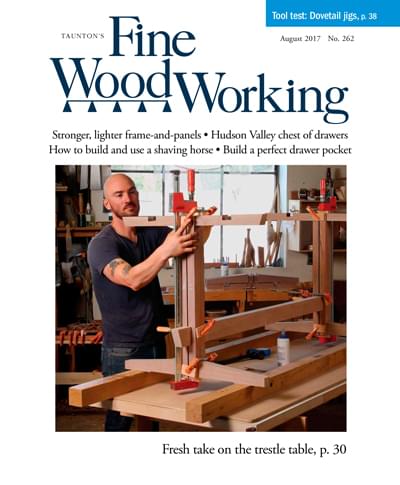

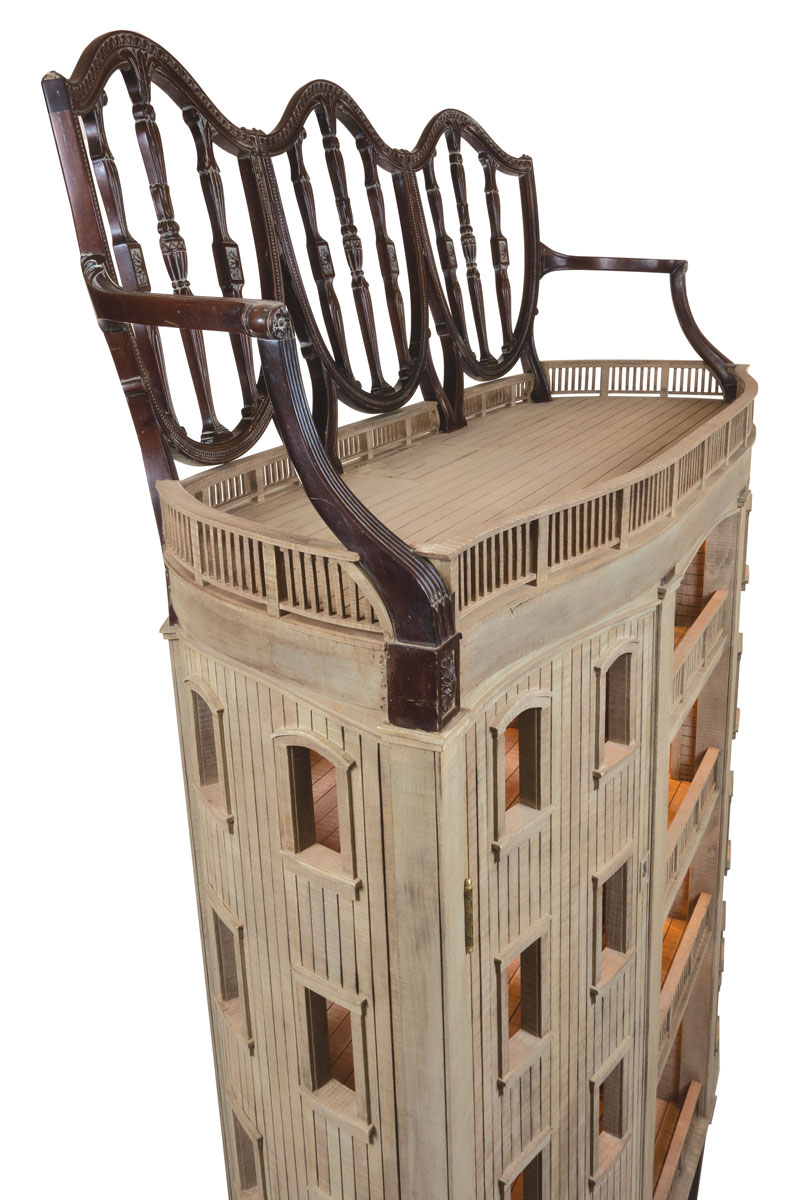



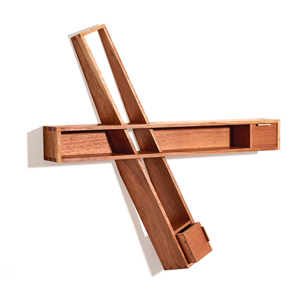
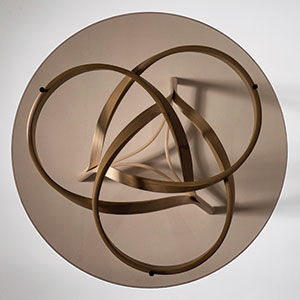
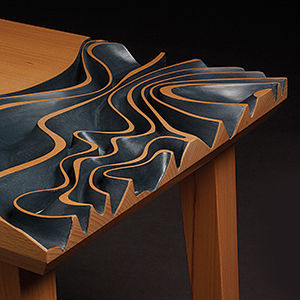













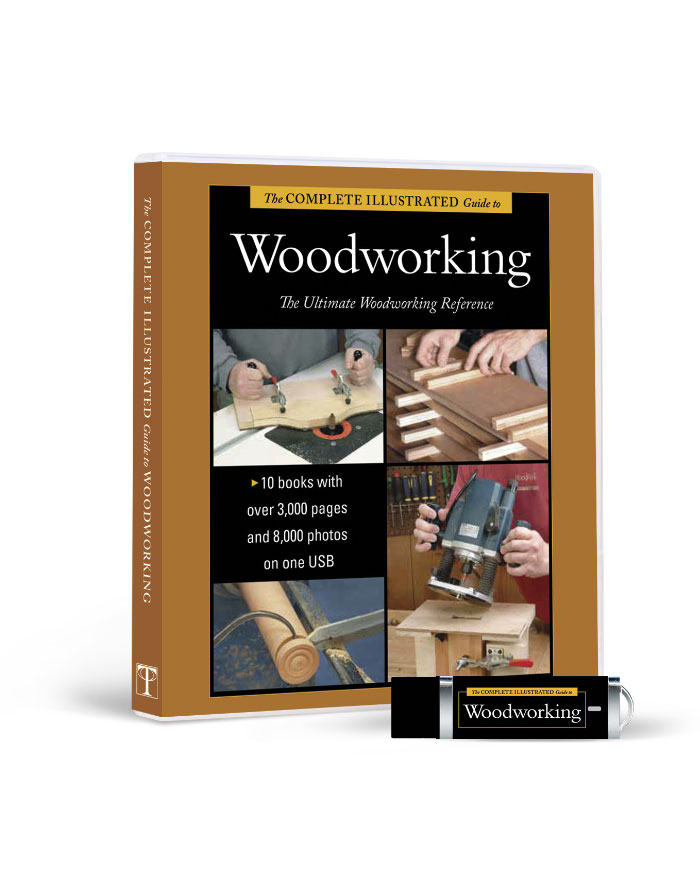
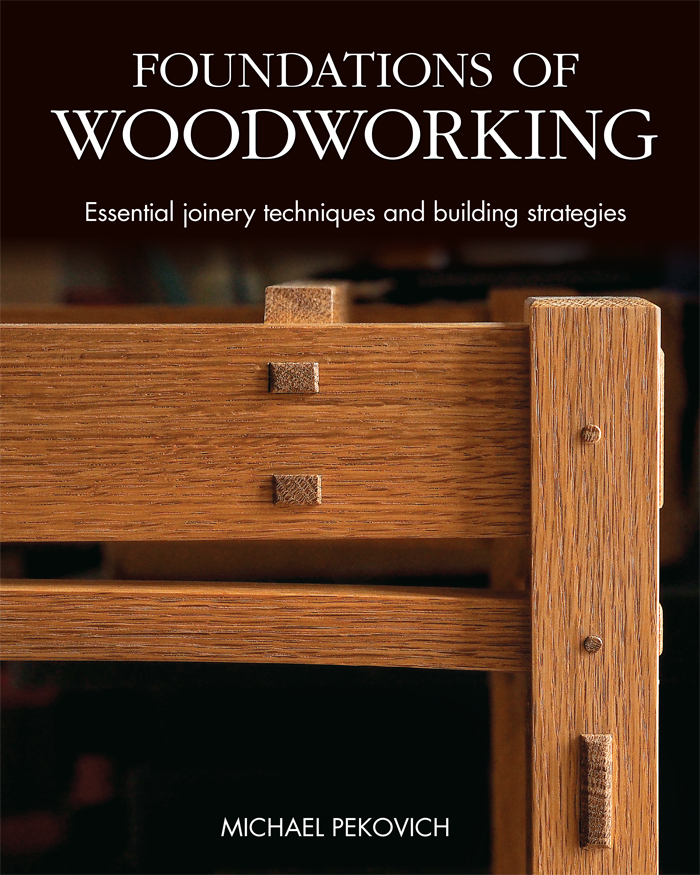





Log in or create an account to post a comment.
Sign up Log in